My Night Spotting UFOs At A Skywatch On Wiltshire's Knap Hill
By Steve Higgins
August 06, 2024
August 06, 2024
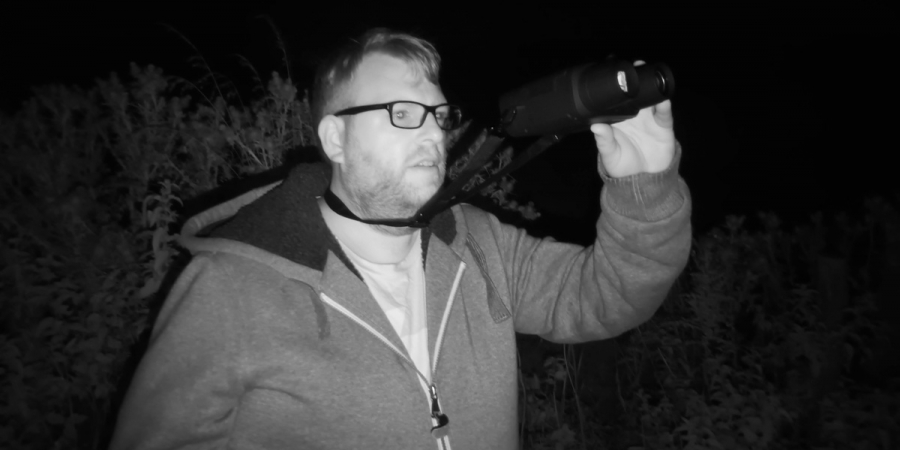

I was quite into UFOs as a teen - well, I guess very into UFOs, even. Me and my friend Steve used to regularly go to UFO talks and lectures, some of which were hosted by members of the British Flying Saucer Bureau, including the legendary Denis Plunkett.
As well as these UFO lectures, we were also regularly driven around Wiltshire by Steve's older brother in his vintage army Land Rover. We visited crop circles and spent the night watching the skies for unexplained phenomena, a pursuit known as a "skywatch" in ufology circles.
Recently, there has been a resurgence in interest in UFOs. This, of course, has a lot to do with the US government's congressional hearings on UAPs, the modern name for UFOs. All this press got me thinking that I'd like to go on a UFO spotting night vigil again. In fact, it's something I've wanted to do for a while.
I got a few friends involved and set aside two consecutive nights for a skywatch event. We were aiming for the first Friday in August, but if the weather conditions weren't clear enough, we'd fallback to the Saturday night instead.
It had been really hot and clear all week, but by mid-afternoon on Friday it was starting to cloud over. I tried to get a better idea of the predicted conditions in the part of Wiltshire we were headed for. Of course, weather forecasts are notoriously unreliable, so I looked at three different sources - the Met Office, Windy.com, and BBC Weather - to try to get a clearer picture.
It wasn't looking great, so we decided to postpone the event until the Saturday night. It seems we made the right choice. Friday turned out to be a cloudy night, and by 11pm it was raining. 24 hours later, the weather was looking much more promising as I loaded up the van with the essentials, including the dog and my girlfriend, Kerry. We picked up my old UFO-spotting friend Steve on the way, and we were meeting another friend, James, there.
We arrived at Pewsey Downs Car Park just before 9pm and got parked up. The gravel car park, just off the road from Alton Barnes to Marlborough, is a narrow strip along the start of a byway but has room for a fair few cars. By day it's a popular parking place for local walks and a site used for overnight camping by van dwellers.
We arrived at Pewsey Downs Car Park just before 9pm and got parked up. The gravel car park, just off the road from Alton Barnes to Marlborough, is a narrow strip along the start of a byway but has room for a fair few cars. By day it's a popular parking place for local walks and a site used for overnight camping by van dwellers.
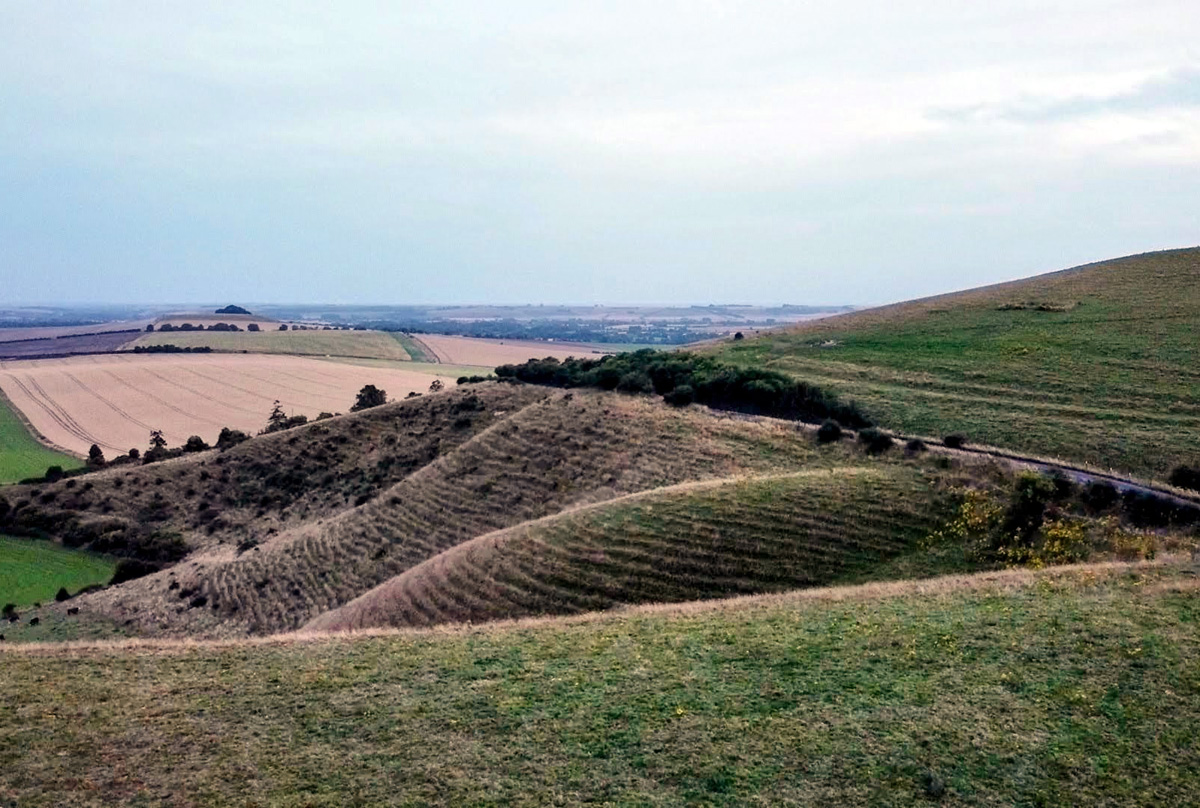
My main concern about going to a car park in the middle of nowhere late at night was that there would be youths in cars, boy racers, and doggers hanging around. But luckily, there were only a few other cars there when we arrived. A couple of them seemed to be parked up for the night with people sleeping in them.
The carpark is just a two-minute walk from the peak of Knap Hill, a UFO viewpoint that I thought I had been to on a skywatch like this as a teen, but I didn't recognise it at all. It might be that I'd simply forgotten the location, or it could be that I hadn't actually been there at all but knew the name as it's a bit of an iconic UFO spotting location linked to the famous "Warminster Thing."
Named after the historic market town about 20 miles away, the Warminster Thing refers to a series of mysterious phenomena that began on Christmas Day in 1964. These events included unexplained sounds and UFO sightings, which captured the attention of the local population and drew UFO enthusiasts from across the country. Witnesses reported hearing odd crackling noises and seeing strange objects in the sky, ranging from cigar-shaped crafts to metallic orbs and peculiar lights. This period of activity continued until the late 1970s, turning Warminster into a focal point for those interested in the unexplained.
Following the events of the Warminster Thing, a region around Warminster where these unusual events were frequently reported became known as "The Warminster Triangle." The exact boundaries of the triangle are not officially defined or important, as it refers to more of a conceptual idea used to describe the concentration of events rather than a strictly delineated geographical area.
Being situated nearer Marlborough than Warminster, our location, Knap Hill, almost certainly doesn't fall within any geographic triangle around Warminster, but it definitely fits into the ufological history of the area. However, Knap Hill is a great skywatching location as it is easily accessible, there's plenty of parking, and there's low light pollution. It's not quite what would be described as an official "dark site," but as a rural location, there is minimal light pollution, providing perfect conditions for spotting unexplained phenomena.
The official sunset time was 20:51, but it took a while to really get dark. We saw the first star, the North Star, at around 21:40, and at this point we got stuck into our skywatch, and before long we saw our first satellite streak across the sky. If you've never seen a satellite, they look like a regular star, but they move steadily across the sky, often taking three to five minutes to travel from one horizon to the other. You can distinguish them from aeroplanes, which are normally accompanied by flashing lights and engine noise.
At around 22:15, we saw our first strange aerial phenomenon. Steve excitedly drew our attention to it, saying, "There was a light that came on in the sky once, and there's another one over there." He pointed towards what appeared to be a pulsing light and said, "That doesn't look like a normal aircraft." I agreed, there was something odd about it, and there didn't appear to be any flashing lights like you'd expect on a plane. But of course, as we watched, we realised it was just an aircraft. As it moved higher above the horizon and passed across the sky, we could see it wasn't pulsing but in fact had a flashing red light.
We carried on watching the sky and saw multiple satellites crossing over, a few planes, and I think everyone saw at least one shooting star, each with varying degrees of impressiveness.
Advertisement ‐ Content Continues Below.
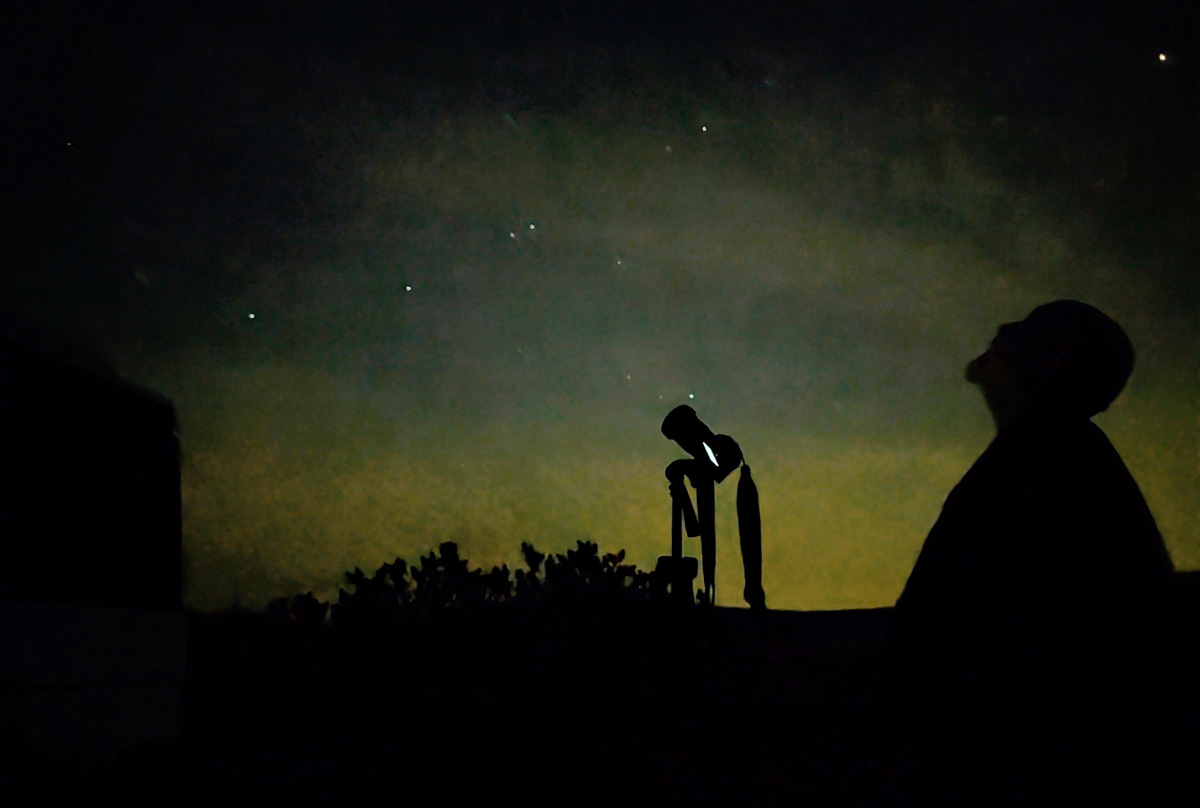
At one point, Steve excitedly said, "Did you see that flash?" But then, sounding less enthusiastic, he added, "Oh, it's a plane," after noticing the flashing light blink back on. He explained that the light had seemingly appeared in the middle of the sky, but of course we'd just failed to notice it up to that point. This did prompt me to comment, "You can see why some people think they're seeing UFOs," to which there was a unanimous "yes" in response from the group. Steve added, "If we were kids and we saw that, that's good enough. That would be a UFO for me."
One thing that turned out to be essential for a skywatch was having an agreed-upon system for letting each other know exactly where things were in the sky. We opt for the clock face directions system, defining 12 o'clock as the back of the van, the direction we were looking in, towards Adam's Grave on the nearby Walker's Hill.
Astronomically speaking, stargazers generally don't use the clock-face system, they tend to refer to the "azimuth," which is the angle measured clockwise around the observer's horizon from a reference direction, usually true north. The clock face directions system we were using was a simplified way to express azimuth that didn't rely on us knowing which was was north.
The other key component astronomers use to describe the position of celestial objects in the sky is the "altitude," a measure we did adopt and use alongside the clock system. The altitude is the angle between the object and the observer's horizon, measured in degrees. An object on the horizon has an altitude of 0 degrees, while an object directly overhead has an altitude of 90 degrees. So we might say, "There's a flashing light at 3 o'clock, 45 degrees." This would indicate that the plane was to our immediate right and at an altitude of 45 degrees above the horizon.
Another valuable method of drawing each other's attention to a specific point in the sky was the green laser pointer I'd brought along. These inexpensive gadgets work surprisingly well when pointed at objects in the sky. Unlike the more common red laser pointers, green lasers are much more visible in the night sky, and you can actually see the beam seemingly reaching up to the star it is pointed at. This is because green light is more visible to the human eye, which is most sensitive to light in the green part of the spectrum. Additionally, green laser light scatters more in the atmosphere, making the beam appear brighter and more distinct against the dark sky.
Unfortunately, by about 11pm there was a thin cloud layer covering the whole sky. It wasn't enough to block visibility when looking straight up, but when looking at stars nearer the horizon, where we were looking through more cloud, the visibility began to worsen.
Just before 23:30, something unexpected happened. We heard a sound like a flying saucer - the stereotypical sci-fi noise of an approaching craft. It turned out to be just a Tesla pulling into the car park with its distinctive Jetsons-like electronic spaceship sound. What was unexpected was that the couple in the car were normal, friendly people.
They came over for a chat after parking up near us, but I was a bit cagey with them at first, because I didn't want to dive straight into admitting that we were there to look for aliens, as they might think we're mad, but as the conversation continued, it became apparent that they were there for the same purpose.
It transpired that they'd come from London for a couple of nights - no surprise, Tesla drivers. He was really into UFOs and knew the area well. He said he'd dragged his friend, an American girl, along with him. They were spending a couple of days looking at crop circles in the area and were spending the night, like us, looking up to the sky.
They stayed with us for about twenty minutes before hopping back in their Tesla and quietly rolling out of the car park. The rest of us stayed there until about twenty past midnight. We might have stayed longer, but the cloud was an astronomy killer, and it wasn't the warmest of nights.
Although we didn't make contact with ET, I did really enjoy my night under the stars, and it is something I would definitely do again.
More On UFOs
See All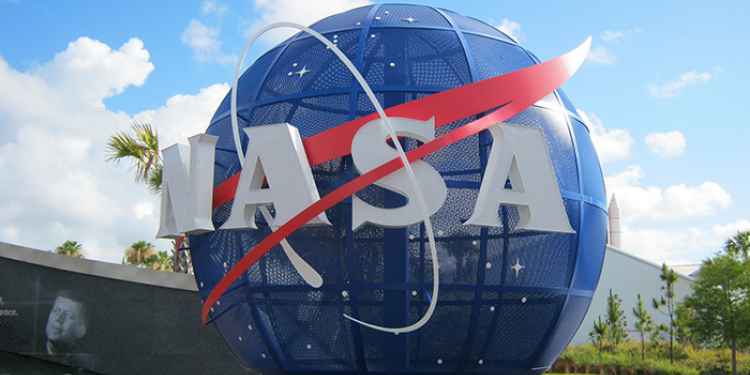
ArrayApril 12, 2025
What Do Astronauts Say About UFOs?
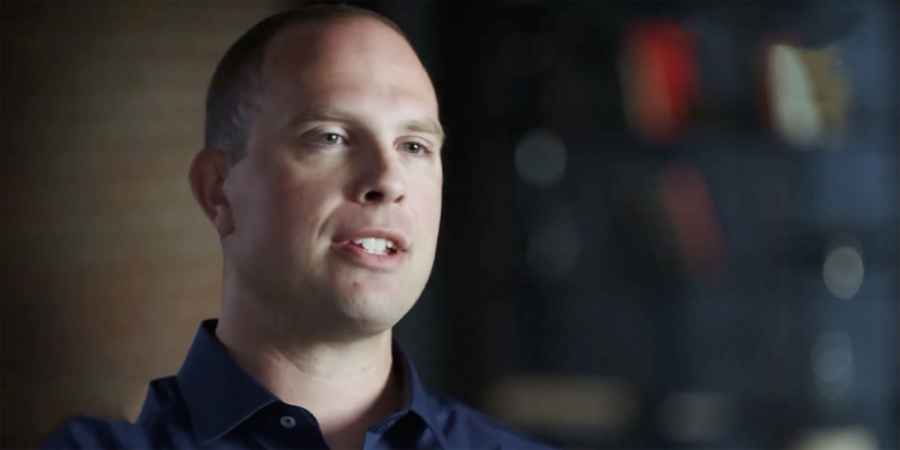
ArrayApril 04, 2025
David Grusch Claims US Government Possesses Multiple "Non-Human" Craft
Learn With Higgypop
Hosted by Paralearning in association with Higgypop, these courses on ghost hunting, paranormal investigations, and occult practices draw on the experience of our team of paranormal writers.
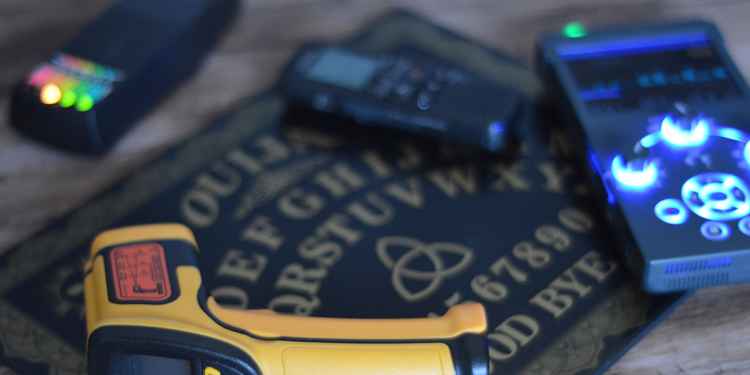
Diploma In Practical Ghost Hunting & Scientific Analysis
This course gives you practical and useful knowledge of ghost hunting and paranormal research, which is invaluable when conducting your own paranormal investigations or as part of a group event.
View Course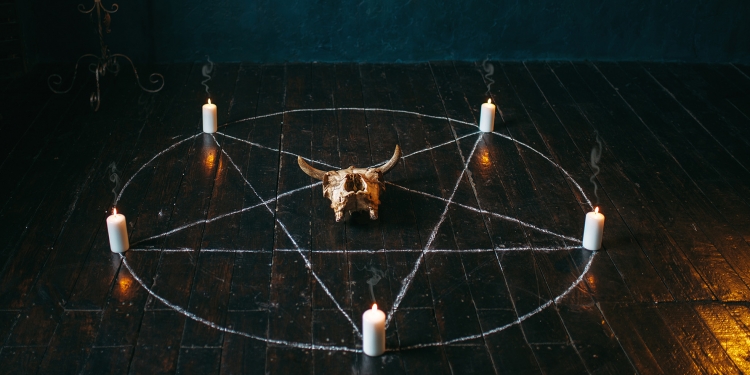
Diploma In Modern Demonology For Paranormal Investigators
This course gives you practical and useful knowledge of ghost hunting and paranormal research, which is invaluable when conducting your own paranormal investigations or as part of a group event.
View CourseMore Like This

UfosApril 12, 2025
What Do Astronauts Say About UFOs?

UfosApril 04, 2025
David Grusch Claims US Government Possesses Multiple "Non-Human" Craft
 See More on Audible
See More on Audible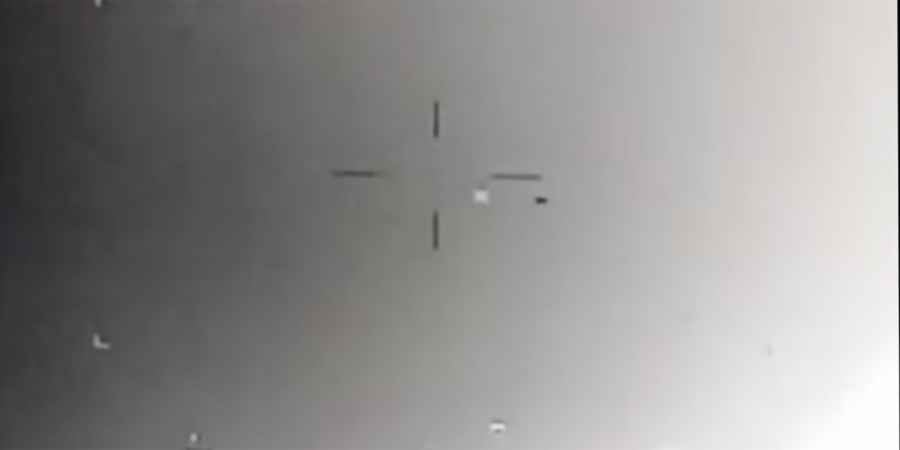
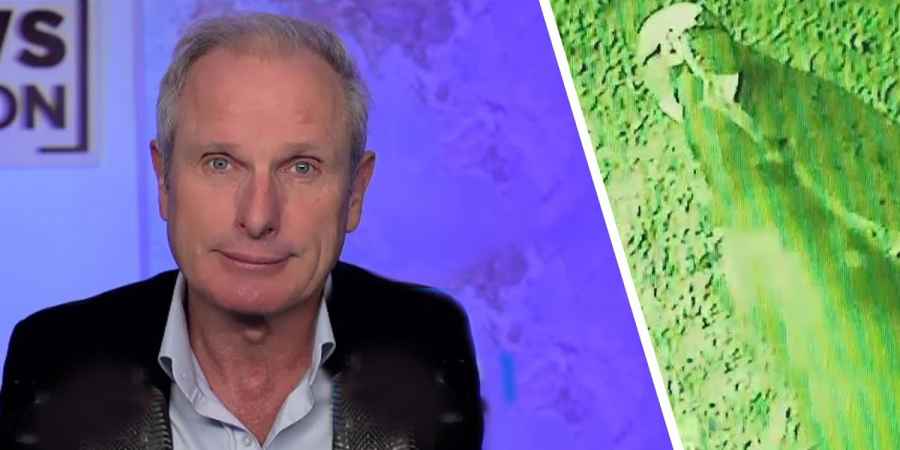


Comments
Want To Join The Conversation?
Sign in or create an account to leave a comment.
Sign In
Create Account
Account Settings
Be the first to comment.